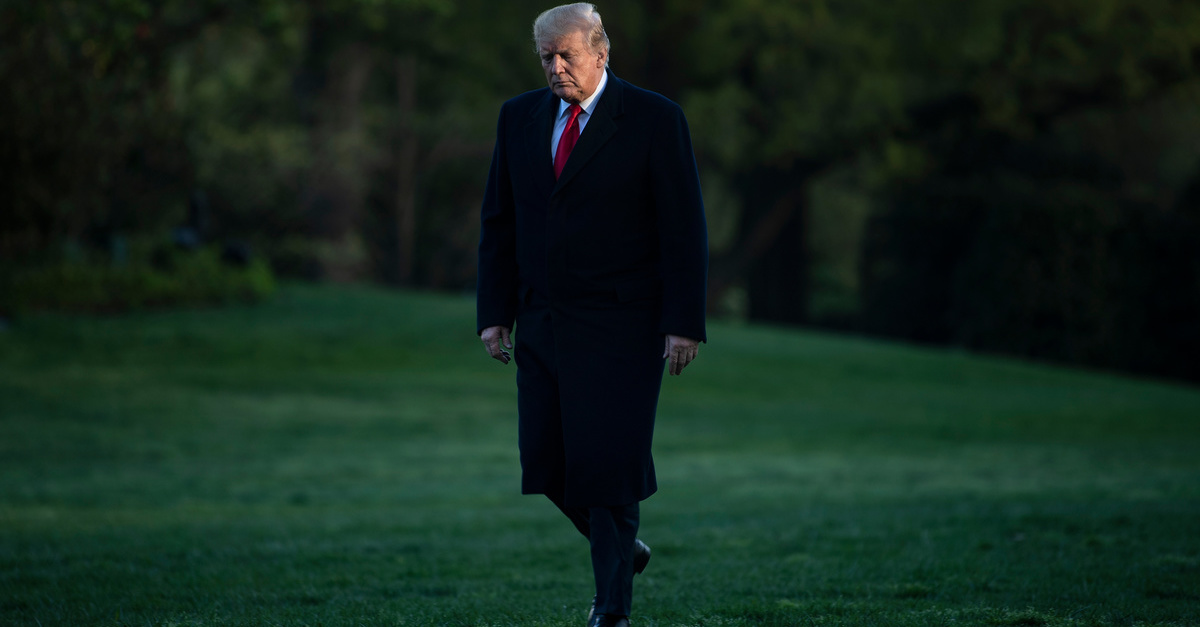
The political and legal world appears as an immense accumulation of images. One of the most striking images from the 2016 presidential campaign was the notion put forward by then-candidate Donald Trump that he could literally shoot someone in the middle of Manhattan’s 5th Avenue and suffer zero political consequences.
In a Manhattan courtroom on Wednesday morning, Trump lawyer William Consovoy argued the 45th president could take such a shot, make it, and suffer zero legal consequences as well.
The shocking theory was delivered during a contentious hearing on whether or not Manhattan county prosecutors could subpoena Trump’s tax returns from his accounting firm Mazars USA, LLP.
“What if he did pull out a gun and shot someone on 5th Ave?” Assistant District Attorney (ADA) Carey Dunne asked. “Would police be restrained from disabling such a person? Nothing could be done? Would we have to wait for impeachment?”
With no answers forthcoming, U.S. Circuit Judge of the U.S. Court of Appeals for the Second Circuit Denny Chin pressed Consovoy about the theoretical limits of investigating a sitting president. He asked:
What’s your view on the 5th Avenue example? Local authorities couldn’t investigate? They couldn’t do anything about it?
Consovoy initially struggled to answer.
“I think once a president is removed from office, any local authority–this is not a permanent immunity,” he said.
“Well, I’m talking about while in office,” Judge Chin clarified.
“No,” Consovoy said.
Chin then moved in for the final answer: “Nothing could be done–that’s your position?”
To which Consovoy replied: “That is correct. That is correct.”
Appearing before a three-judge panel, Consovoy repeatedly affirmed the president’s argument that presidential immunity from criminal prosecution is absolute.
According to Courthouse News‘ Adam Klasfeld, Judge Chin summed up Trump’s legal position as being: if a president commits a crime “no matter how heinous,” even if said crime occurred before the president’s term in office, no prosecutor could even investigate that crime while the president in question was still in office. Consovoy replied that was, in fact, the president’s legal argument.
Chin responded that such arguments had more or less been dispensed with by the Supreme Court in the case of Clinton v. Jones.
Consovoy, however, offered the legally-groundless counter that “history will judge” whether the prior unanimous ruling against then-president Bill Clinton‘s similar argument was “correct.”
The hearing also explored a few other issues.
Trump’s lawyers complained the Manhattan “subpoena copies the congressional subpoenas which relate to the Washington, D.C. hotel.”
ADA Dunne replied to a prompt on that front from Judge Robert Katzmann that the legal filings were copied word-for-word in certain instances in order to make it easier on Mazars USA to comply with various legal orders coming from various government entities.
Judge Katzmann also asked Dunne whether his office would commit to preserving the confidentiality of Trump’s tax returns should they receive them. Dunne replied in the affirmative and added:
There is no privilege for tax returns. They’re making this [alleged privilege] up, your honor. That’s all I can say.
Dunne himself complained that Trump’s legal team predicted an inflexible victory: “The appellant’s counsel told us bluntly that he would never, ever agree to release [Trump’s] tax returns.”
Katzmann predicted the case was destined for the Supreme Court.
[image via BRENDAN SMIALOWSKI/AFP/Getty Images]